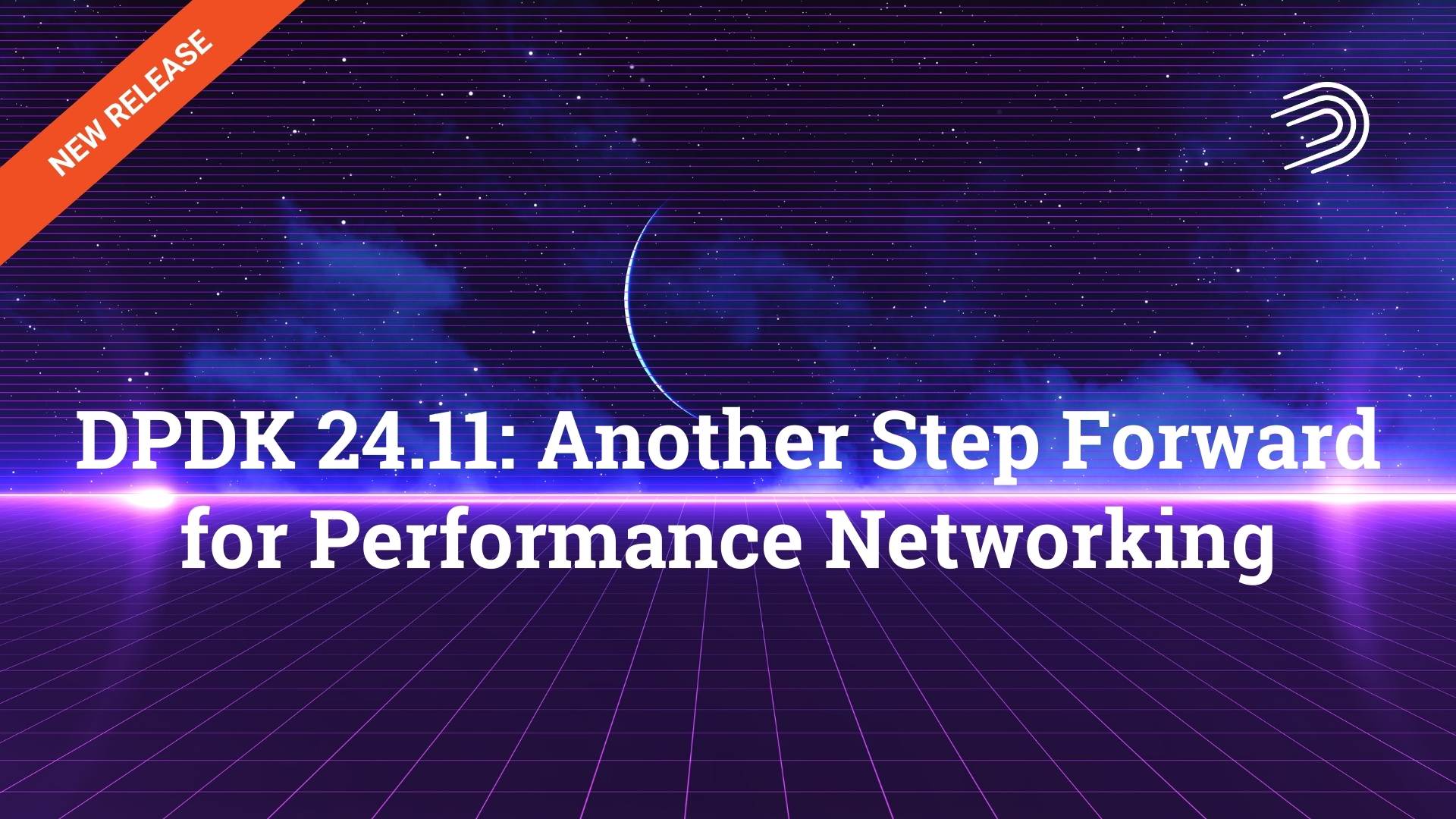
DPDK has unveiled its latest release, DPDK 24.11, marking a significant step forward in performance, flexibility, and hardware integration for packet processing. Here’s what you need to know about the latest advancements, new features, and what they mean for developers and system integrators.
A Busy Release Cycle: By the Numbers
This release was the product of an impressive collaborative effort:
- 1329 commits by 196 authors.
- Changes across 2557 files, with 376,587 insertions and 177,108 deletions.
- Contributions from a wide range of organizations, ensuring a diverse and robust codebase.
The new release introduces some API/ABI compatibility breakages, marking a clear departure from previous versions. The new ABI version (25) means that while 24.11 will be supported for three years, its successors (25.03 and 25.07) will maintain ABI compatibility with this release. This makes 24.11 an excellent foundation for long-term system integration and deployment.
Key Highlights of DPDK 24.11
The new features and improvements span various areas, from power management and IPv6 handling to enhanced cryptography and logging. Below are some of the most notable updates:
1. Performance and Resource Management
- Lcore Variable Allocation: Improved CPU core management allows for more dynamic and efficient resource utilization.
- Bit Set and Atomic Bit Manipulation: Streamlined bit operations enhance concurrency and reduce overhead.
- Power Management Enhancements:
- AMD uncore power management improves energy efficiency.
- Per-CPU power management QoS for resume latency enables finer control of power-performance trade-offs.
2. Networking Features
- IPv6 Address API: Simplifies the handling of IPv6 addresses in applications.
- RSS Hash Key Generation: Automates generation of RSS keys, enhancing load balancing capabilities.
- Ethernet Link Lanes: Improves support for high-speed Ethernet configurations.
- Flow Table Index Action: Adds more control for flow-based operations, aiding advanced packet processing.
3. Hardware and Driver Support
New drivers and enhancements to existing ones extend DPDK’s hardware compatibility:
- New Hardware Integrations:
- Cisco ENIC VF, Marvell CN20K, Napatech NTN flow engine.
- Realtek R8169 and ZTE drivers expand support for a broader range of network interfaces.
- Enhanced Cryptography Support:
- Symmetric Crypto SM4 and Asymmetric Crypto EdDSA bolster security capabilities.
4. Event and Logging Improvements
- Event Device Features: Pre-scheduling and independent enqueue capabilities enhance event-driven processing.
- Logging Rework: Revamped logging adds timestamps, color-coded outputs, syslog, and journal support, improving debugging and operational insights.
Welcoming New Contributors
The DPDK community grew stronger with 50 new contributors, spanning roles such as authors, reviewers, and testers. This diversity reflects the open source ethos and ensures continuous innovation.
Key contributors include individuals from Intel, Marvell, NVIDIA, Red Hat, and many others, with Intel leading in the number of commits.
A special thanks to the top reviewers who played a vital role in maintaining code quality and collaboration. Their efforts highlight the often-underappreciated task of reviewing contributions.
Looking Ahead: What’s Next?
The next release, DPDK 25.03, is slated for March 2025. Development for this version is already underway, with feature submissions open through December. This cadence ensures a predictable and collaborative development process.
For those planning deployments, DPDK 24.11’s three-year support period makes it the recommended version for stability and long-term integration.
Download DPDK 24.11 here


